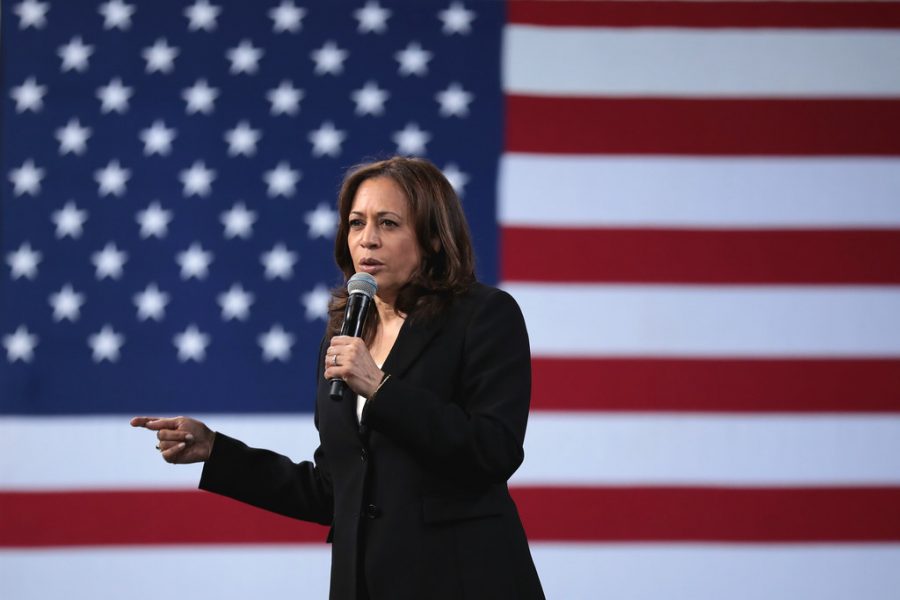Kamala Harris makes history as the new Vice President
“Kamala Harris” by Gage Skidmore is licensed under CC BY-SA 2.0
Kamala Harris was sworn into office with Joe Biden on Jan. 20. She is the first woman of color to be vice president in United States history.
January 28, 2021
On Jan. 20, 2021, Joe Biden was sworn into office as the 46th President of the United States alongside Kamala Harris as the 49th vice president. Making history as the first female, Black and South Asian vice president in the nation’s history, her newfound position is a milestone for the future of representation in the United States government.
She has taken on a symbolic role for the Democratic Party, and for women and people of color who have often felt poorly spoken for in the government. Many have felt impacted by the gravity of her achievement.
“To have her there in the White House is just a remarkable historic moment for me,” said Barbara Lee, a California congresswoman and ally of Harris. “Black women have fought so hard to elect other people, to be a part of this Democratic Party, to get people out to vote.”
It has been an ongoing battle for minorities to see themselves fairly represented in politics, extending to years past. Although there is still much work to be done, Harris’ win brings America one step closer to ending its perpetuated period of discrimination.
“I believe that Kamala Harris’s vice presidency is extremely impactful because she has made it known to people of color that nothing is impossible,” said freshman Asha Watson. “She has made it known that if you work hard enough and treat people with respect, you’ll make it far. She shows that through her actions and words every day.”
In her victory speech on Jan. 16, Harris spoke of how her presence as the first woman in this office will be inspiring to girls in the country. She is confident that although she is the first female vice president, she will not be the last. Other women will be able to see that this kind of success is possible for them to attain and may be motivated to raise their aspirations.
“I think everyone looks for someone to relate to or hold as an inspiration, and Kamala Harris has become, and will be for a long time, a symbol for young girls to realize the power and worthiness they have,” said freshman Makena Moore. “And especially young girls right now who are witnessing history seeing our first female Vice President. They can recognize that anything can be done, even if they themselves have to be the first for a long line of girls to follow.”
The event is especially meaningful occurring almost a century after the 19th Amendment was passed to give some women the right to vote, symbolizing the progress women have made and continue to make in the struggle for equality.
Harris’ ascension to office broadens the scope of what women in this country can achieve, and proves the impact people can have when they continue to fight and broadcast their voices.
“It sends a message about what kind of country we are today,” said Manisha Sinha, a professor of American history at the University of Connecticut. “An interracial democracy that represents people, men and women, from all over the globe. I think that’s a very good thing for American democracy. And for me personally, it gives me a sense of national belonging that may not have been there before to some extent.”
The role of Vice President Harris is set up to be unique, presiding over an evenly divided Senate during a polarizing time between the parties, and will likely be used more frequently to cast tie-breaking votes. These include votes on cabinet nominees and judges, congressional review acts and budget resolutions.
Now it is up to President Biden and Vice President Harris to determine the future of their partnership so the real work can begin to rebuild and unite America after a tumultuous year, and to recover the country from the disastrous pandemic still ravaging the world.
So far, the administration is looking to tackle four main causes, which are COVID-19, economic recovery, racial justice and climate change. Harris is planned to be involved in every major issue in order to take advantage of her wide range of expertise.


